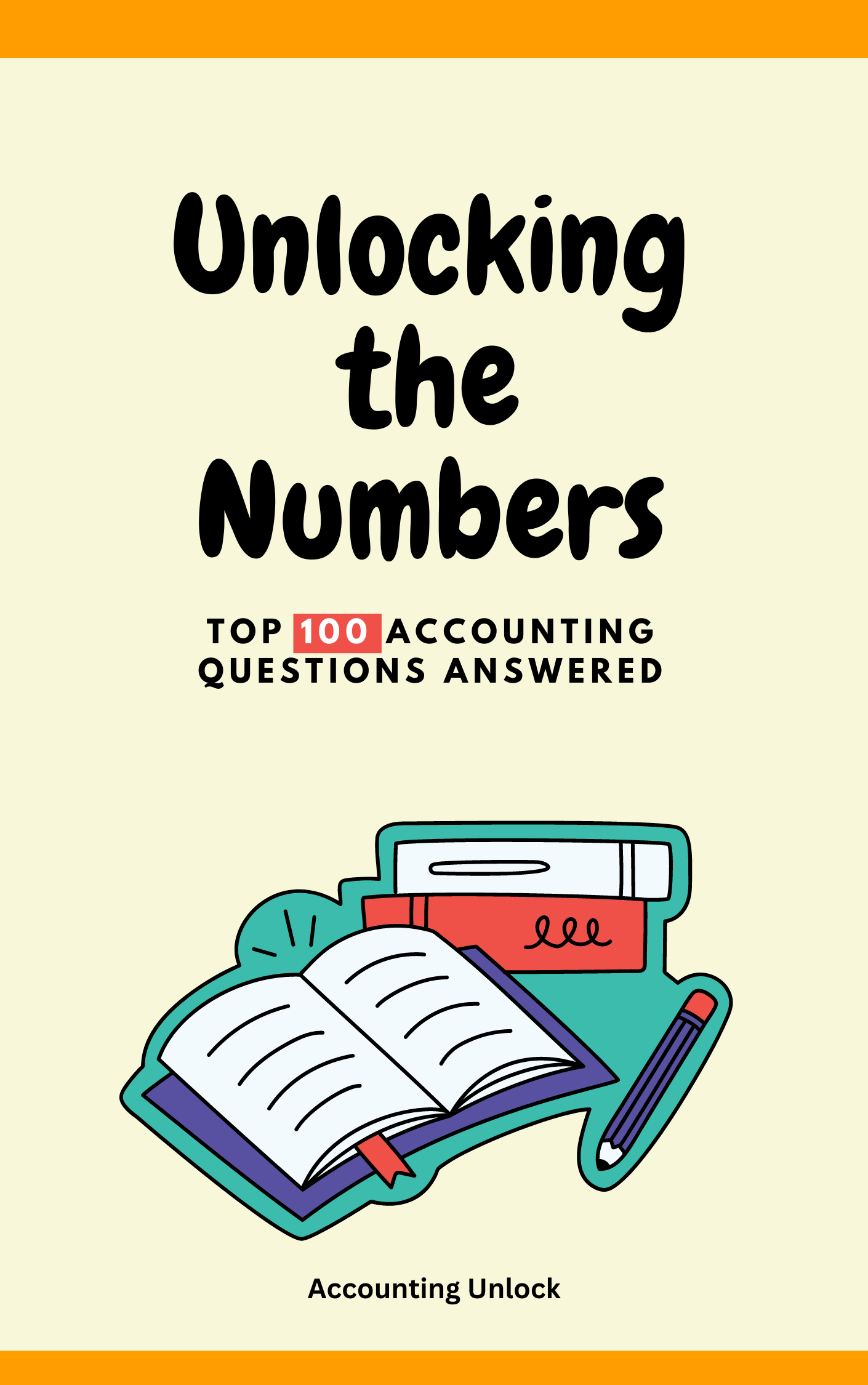Have you ever wondered what accounting is and why it’s important? Imagine it as the captivating language of business, helping us decipher the intricate tales of money, assets, and transactions. Accounting isn’t just about numbers; it’s a fascinating subject that reveals the inner workings of the world around us.
In this blog post, embark on a journey with us as we demystify accounting. We’ll explore what it is, how it functions, and why it holds such significance. Whether you’re a student, a budding entrepreneur, or simply curious, this post aims to be your guide in unlocking the secrets of accounting with ease.
Table of Contents
What Is Accounting?
Accounting is the process of recording, organizing, analyzing, and reporting financial information. Accounting helps us measure and communicate the economic activities and performance of a business, an organization, or an individual.
Accounting involves two main types of activities: bookkeeping and analysis.
Bookkeeping is the process of recording and summarizing financial transactions, such as sales, purchases, payments, and receipts.
Analysis is the process of interpreting and evaluating the financial data, such as income, expenses, assets, liabilities, and equity.
Accounting can be divided into different branches, depending on the purpose and the users of the information.
Some of the most common branches are:
- Financial accounting: This branch focuses on preparing and presenting financial statements that show the financial position and performance of a business to external users, such as investors, creditors, regulators, and tax authorities. Financial accounting follows a set of rules and standards, such as the Generally Accepted Accounting Principles (GAAP) or the International Financial Reporting Standards (IFRS).
- Managerial accounting: This branch focuses on providing useful and relevant information to internal users, such as managers, owners, and employees, to help them make better decisions, plan, and control the operations of a business. Managerial accounting does not have to follow any specific rules or standards, but it should be accurate, timely, and relevant.
- Cost accounting: This branch focuses on calculating and analyzing the costs of producing goods or services, and how they affect the profitability and efficiency of a business. Cost accounting helps managers to optimize the use of resources, set prices, and budget.
- Tax accounting: This branch focuses on preparing and filing tax returns, and complying with tax laws and regulations. Tax accounting helps individuals and businesses to minimize their tax liabilities and maximize their tax benefits.
- Auditing: This branch focuses on examining and verifying the accuracy and reliability of the financial statements and records of a business, and expressing an opinion on whether they are fair and true. Auditing helps to enhance the credibility and trustworthiness of the financial information, and to prevent and detect fraud and errors.
- Forensic accounting: This branch focuses on investigating and resolving financial disputes, crimes, and frauds, using accounting skills and techniques. Forensic accounting helps to provide evidence and testimony in legal cases, and to recover losses and damages.
How Does Accounting Work?
Accounting works by using a system of accounts, transactions, and reports.
An account is a record of the changes in the value of a specific item, such as cash, inventory, or equipment.
A transaction is an event that affects the value of one or more accounts, such as buying, selling, paying, or receiving.
A report is a document that summarizes and presents the information from the accounts, such as a balance sheet, an income statement, or a cash flow statement.
Accounting uses a method called double-entry bookkeeping, which means that every transaction affects two or more accounts, and that the total value of the accounts always balances. For example, if a business buys a computer for $1,000, it will affect two accounts: cash and equipment. The cash account will decrease by $1,000, and the equipment account will increase by $1,000. The total value of the accounts will remain the same.
Accounting also uses a concept called the accounting equation, which shows the relationship between the assets, liabilities, and equity of a business.
The accounting equation is: Assets = Liabilities + Equity
Assets are the resources that a business owns or controls, such as cash, inventory, or equipment. Liabilities are the obligations that a business owes to others, such as loans, accounts payable, or taxes. Equity is the difference between the assets and the liabilities, and it represents the ownership interest of the owners or shareholders of a business.
The accounting equation must always be balanced, which means that the value of the assets must always equal the value of the liabilities and the equity. If a transaction changes the value of one side of the equation, it must also change the value of the other side by the same amount.
For example, if a business borrows $10,000 from a bank, it will affect two accounts: cash and loans. The cash account will increase by $10,000, and the loans account will increase by $10,000. The value of the assets will increase by $10,000, and the value of the liabilities will increase by $10,000. The value of the equity will remain the same.
Why Does Accounting Matter?
Accounting matters because it helps us understand and improve the financial situation and performance of a business, an organization, or an individual. Accounting provides us with valuable information that can help us to:
- Make informed and rational decisions, such as whether to invest in a business, whether to buy or sell a product, or whether to save or spend money.
- Plan and budget for the future, such as how much revenue to expect, how much expenses to incur, or how much profit to make.
- Monitor and control the activities and operations of a business, such as how well the business is meeting its goals, how efficiently the business is using its resources, or how effectively the business is managing its risks.
- Communicate and report to the stakeholders, such as the owners, managers, employees, investors, creditors, regulators, and tax authorities, about the financial position and performance of a business, and how it affects their interests and expectations.
- Comply with the laws and regulations, such as the tax laws, the accounting standards, or the auditing rules, that govern the financial activities and transactions of a business.
Examples of Accounting in Action
To illustrate how accounting works and why it matters, let’s look at some examples of accounting in action.
Example 1:
A student wants to save money for a vacation. She uses accounting to track her income and expenses, and to set a savings goal. She records her income from her part-time job, her allowance, and her gifts. She records her expenses for her food, transportation, entertainment, and education.
She prepares a budget that shows how much money she can save each month, and how long it will take her to reach her goal.
She also prepares a cash flow statement that shows how much money she has available at the end of each month. She uses accounting to help her manage her money and achieve her dream.
Example 2:
A small business owner wants to expand his business. He uses accounting to measure his profitability and growth, and to seek funding. He records his sales, costs, and expenses for his products and services.
He prepares an income statement that shows how much revenue he generates, how much profit he makes, and what his profit margin is.
He also prepares a balance sheet that shows how much assets he owns, how much liabilities he owes, and how much equity he has. He uses accounting to help him evaluate his business performance and potential, and to attract investors and lenders.
Example 3:
A nonprofit organization wants to make a positive impact on society. It uses accounting to monitor its activities and outcomes, and to report to its donors and beneficiaries. It records its donations, grants, and fees for its programs and projects. It records its costs and expenses for its administration and operations.
It prepares a statement of activities that shows how much revenue it receives, how much expenses it incurs, and what its net assets are.
It also prepares a statement of functional expenses that shows how much money it spends on each of its programs and projects. It uses accounting to help it demonstrate its accountability and transparency, and to communicate its mission and vision.
Conclusion
In conclusion, accounting functions as the storyteller of economic activities, using a system of accounts, transactions, and reports to unveil the financial narrative of businesses and individuals. The magic lies in double-entry bookkeeping and the accounting equation, ensuring that every financial move is balanced and coherent.
Why does accounting matter? It’s the compass guiding rational decisions, aiding in future planning, and fostering communication with stakeholders. As we’ve seen in real-life examples, accounting is the tool that empowers individuals, supports business expansion, and facilitates positive societal impact.
So, whether you’re planning a dream vacation, expanding a business, or making a difference in the world, accounting is your trusty companion, helping you navigate the intricate landscape of finances with confidence and clarity. Ready to embark on your financial adventure? Dive into the exciting world of accounting, where numbers tell stories and every transaction is a chapter in the book of financial success.





